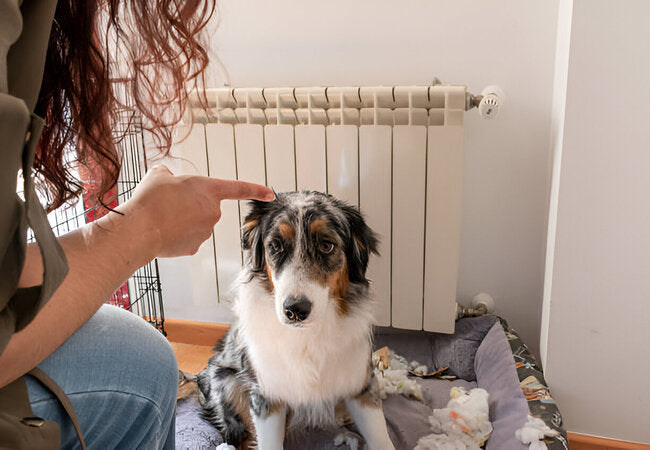Understanding Introverted Dogs: Vet-Approved 2025 Guide 🐶🤫

In this article
Understanding Introverted Dogs: Vet‑Approved 2025 Guide 🐶🤫
By Dr. Duncan Houston BVSc
Not every dog thrives in noisy dog parks or crowded cafes—many are true introverts: calm, self-possessed, and perfectly content with just a few close connections. In this 2025 veterinary guide, we explore what makes a dog introverted, how to differentiate that from fear or anxiety, and how to build an enriched, low-stress life tailored to their temperament. Let’s give these wonderful companions the understanding they deserve. 🐾
What Is an Introverted Dog?
The term “introverted dog” describes pups who prefer solitude or small-scale interaction over high-energy group activities. Unlike shy dogs, introverted dogs aren’t necessarily anxious—they simply enjoy calm, one-on-one experiences and quiet human company.
Some breeds bred for independent work—like Akitas, Anatolian Shepherds, or Newfoundlands—often display these traits, but temperament matters more than breed.
Introverted vs. Shy: Key Differences
It’s important to distinguish:
- Introversion: Natural preference for low-stimulation environments, limited social needs.
- Shyness or fear: Anxiety-driven reactions—cowering, avoidance, lip licking when faced with stressors.
Introverted dogs may walk calmly past other dogs, while shy dogs often retreat or show stress signals.
Signs of an Introverted Dog
Common behaviors include:
- Observant & quiet at social events, preferring perimeter seating.
- Velcro‑style bonding: cling to one or two trusted people.
- Appreciates structured solitude—relaxes in a crate or familiar space.
- May not initiate greetings but remains calm when approached gently.
- Fuss-free at meet-ups—they sniff around, quietly assess, and then retreat to safe distance.
Why Do Introverted Traits Arise?
Multiple influences shape personality:
- Genetics: Independent-working breeds often carry introverted tendencies.
- Early socialization: Quiet pups or limited social exposure foster smaller comfort zones.
- Environment & experiences: Sensitive pups learn to avoid overstimulation.
- Age & health: Seniors or low-energy dogs often exhibit calm, introverted behaviors.
How to Support an Introverted Dog
1. Self‑Aware Ownership
Match your tone and behavior to theirs—speak softly, use slow movements, and let them lead engagements.
2. Respect Their Boundaries
Avoid coercing them into social situations. Use calm signals like “He’s in training” to deflect unwanted attention.
3. Create Predictability
Structured routines build trust. Quiet walks, routine meals, and scheduled alone time help manage energy and stress.
4. Bond Through Low‑Stress Activities
One-on-one games like scent work or easy training build confidence without overwhelm.
5. Offer Quiet Enrichment
Use puzzle toys, stuffed Kongs, snuffle mats, or scent games to engage their minds in safe spaces.
6. Choose Micro‑Social Events
Opt for small playdates or calm walk groups rather than busy dog parks; make space to retreat if needed.
7. Use Counter‑Conditioning When Necessary
If they show mild worry (not fear), use treats and slow exposure to ease them into new settings.
If signs of fear or aggression appear, seek veterinary or behaviorist support.
Activities Introverted Dogs Love
- Short nature hikes in quiet areas.
- Solo beach or open‑field time to sniff and explore.
- Scent work or treasure hunts at home or in secure yards.
- Training sessions focused on focus cues: “watch me”, “target”.
- Interactive toys like tug‑a‑jug, puzzle feeders.
When to Worry ⇒ Shy vs. Fearful
Fearful dogs may exhibit signs such as:
- Cowering, tucked tail, pacing, lip licking.
- Growling or avoidance even in calm settings.
If these appear, consider professional help—introversion never means anxiety or aggression.
Quick Reference Table
| Trait | Introverted Dog | Support Strategy |
|---|---|---|
| Social Instinct | Enjoys 1-2 trusted people/dogs | Low-key bonding & select walk buddies |
| Energy Style | Calm, reserved | Scent work, quiet play |
| Stress Response | Avoids crowds but stays calm | Safe retreat options, empowering choices |
| Age/Health Factor | May slow with age | Gentle exercise and positive touches |
📱 Ask A Vet App Support
Use the Ask A Vet app to:
- Share videos/photos of your dog in different interactions for expert feedback.
- Receive tailored enrichment plans, training regimes, and stress support.
- Coordinate behaviorist consults when introversion overlaps with anxiety.
Your dog's calm comfort journey is easier with expert insight at every step. 🐾📲
Final Thoughts
Introverted dogs bring gentle wisdom and deep loyalty—they don't need bustle, just understanding, routine, and a safe world to thrive. In 2025, we're more aware of diverse temperaments—and introverted dogs are no less extraordinary because they "do quiet." Celebrate their calm and enrich their world, one mindful moment at a time. ❤️🐶
Need personalized guidance? Visit AskAVet.com or download the Ask A Vet app for 24/7 vet and behaviorist support tuned to introverted personalities.






